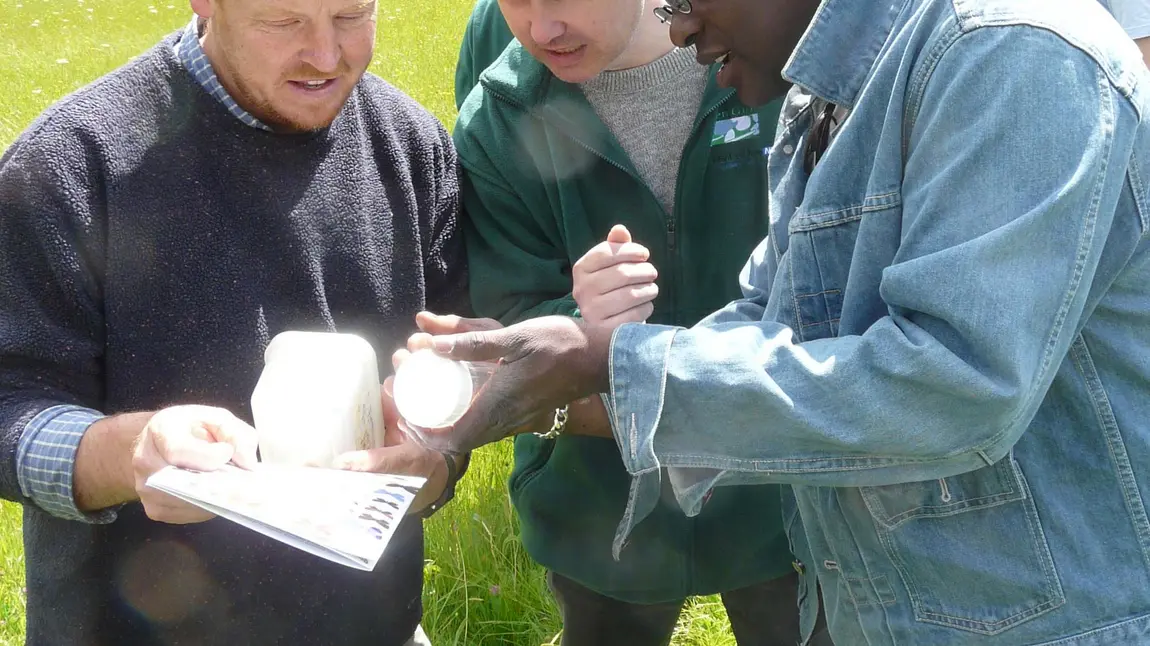More training opportunities for biodiversity volunteers

The project will provide more taxonomic training for underrepresented species, especially those difficult to identify. It will support, signpost and mentor volunteers to help them become more proficient biological recorders.
BioLinks aims to ‘link together’ volunteers so they can help mentor and support each other and link together the existing volunteers and those involved professionally in natural history.
FSC has been providing volunteer training in biological recording for many years and has learnt how to effectively support people, helping them to become more confident and competent so they are able to provide more accurate and validated biological information. An HLF development grant of £41,000 will help FSC to prepare to deliver this work in a new area. London and the South East has been chosen because of the number of active biological organisations in the region.
FSC aims to involve existing and new biological recorders in the project, hoping to extend not only the number of active natural history observers but also increase their age range and diversity. The development work will get underway in January 2016 and towards the end of the year FSC will prepare its final application for the full £1.2m grant.
Activities like bioblitz events, creating and consulting species reference collections, developing species distribution atlases and using identification resources will be part of the project alongside traditional day and weekend courses learning how to identify plants and animals. FSC hopes over 2000 new volunteers will come together within BioLinks and our knowledge of how to protect and conserve the natural world will increase through improved mechanisms, shared knowledge and the use of new technology.
Sue Townsend, FSC Biodiversity Manager said: “I am so pleased that the Heritage Lottery Fund has given us this support. It will help FSC to make sure as many people as possible can get involved in biological recording and identification. Conservation of our natural world depends on having good quality and robust information and this project will support more people to enjoying providing this vital information.”
Tom Tew, Heritage Lottery Fund Trustee, said: “The Heritage Lottery Fund supports a wide range of natural heritage projects, and that includes those that protect the 'uncharismatic' parts of our environment such as beetles and bees – these groups are poorly understood and poorly recorded, but are threatened by habitat loss and development just as much as otters and orchids. Our support will get the BioLinks project off the starting blocks and will enable large groups of volunteers – from dedicated and skilled amateur enthusiasts to schoolchildren and communities just starting - to learn about and better record their local insects and plants.
“It’s early days for this ambitious project but it’s heartening to be investing in some highly innovative 'citizen science' pilot projects which, we hope, will have national roll-out in due course.”
Notes to editors
Earmarked funding means the project meets HLF criteria for funding and HLF believes the project has potential to deliver high-quality benefits and value for Lottery money. The application was in competition with other supportable projects, so this is an endorsement of outline proposals. The project now has up to two years to submit fully developed proposals to secure a firm award.
About FSC
Field Studies Council (FSC) is and environmental education charity committed to helping people to discover, explore, understand and be inspired by the natural world. Its network of centres provides day and residential courses for all ages from young children to retired adults, from schools and communities throughout the UK. It also reaches many others though its publications and community base organisations. More information about the work of the Field Studies Council is available on the Field Studies Council website.
Further information
FSC Head Office on 01743 852 100.